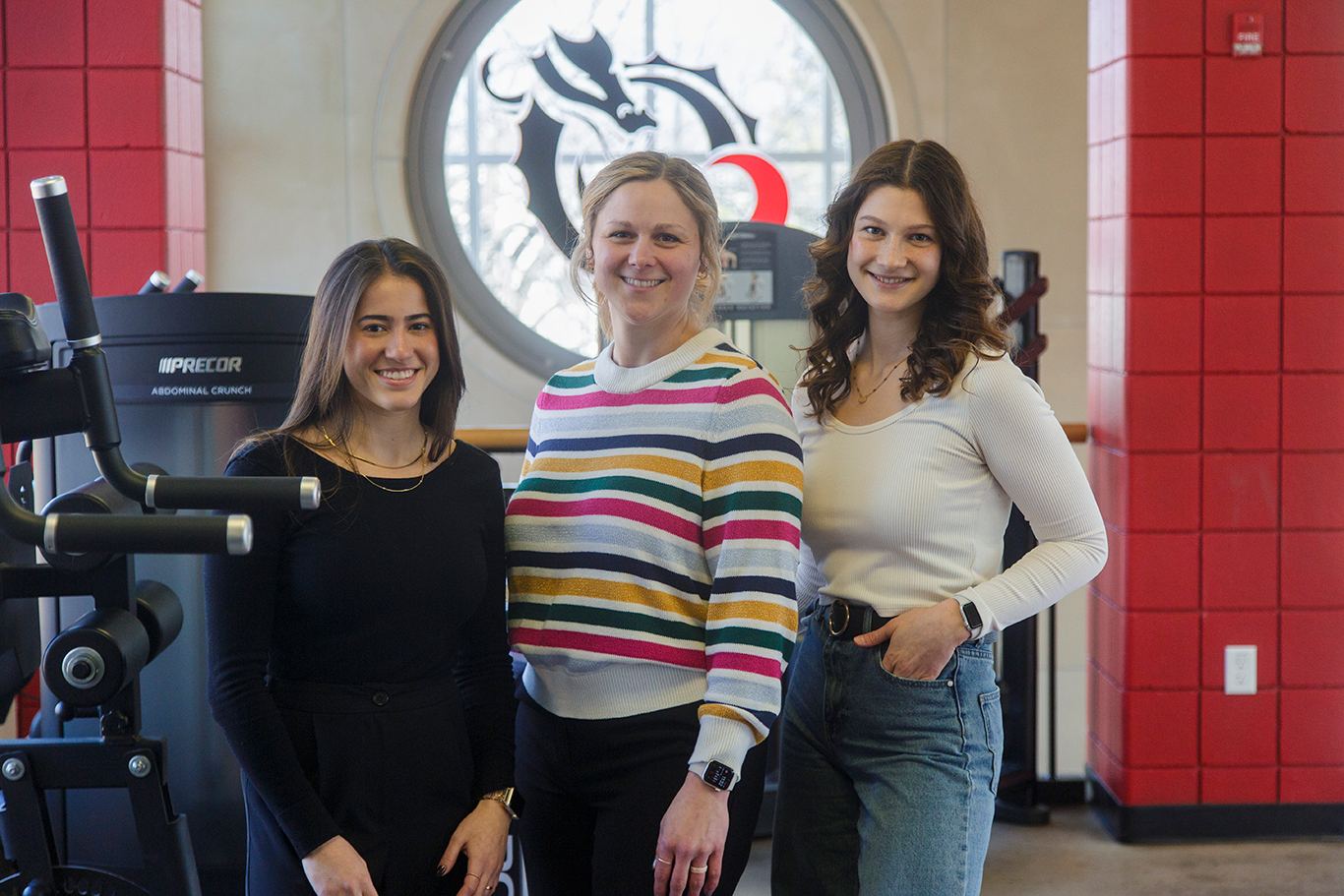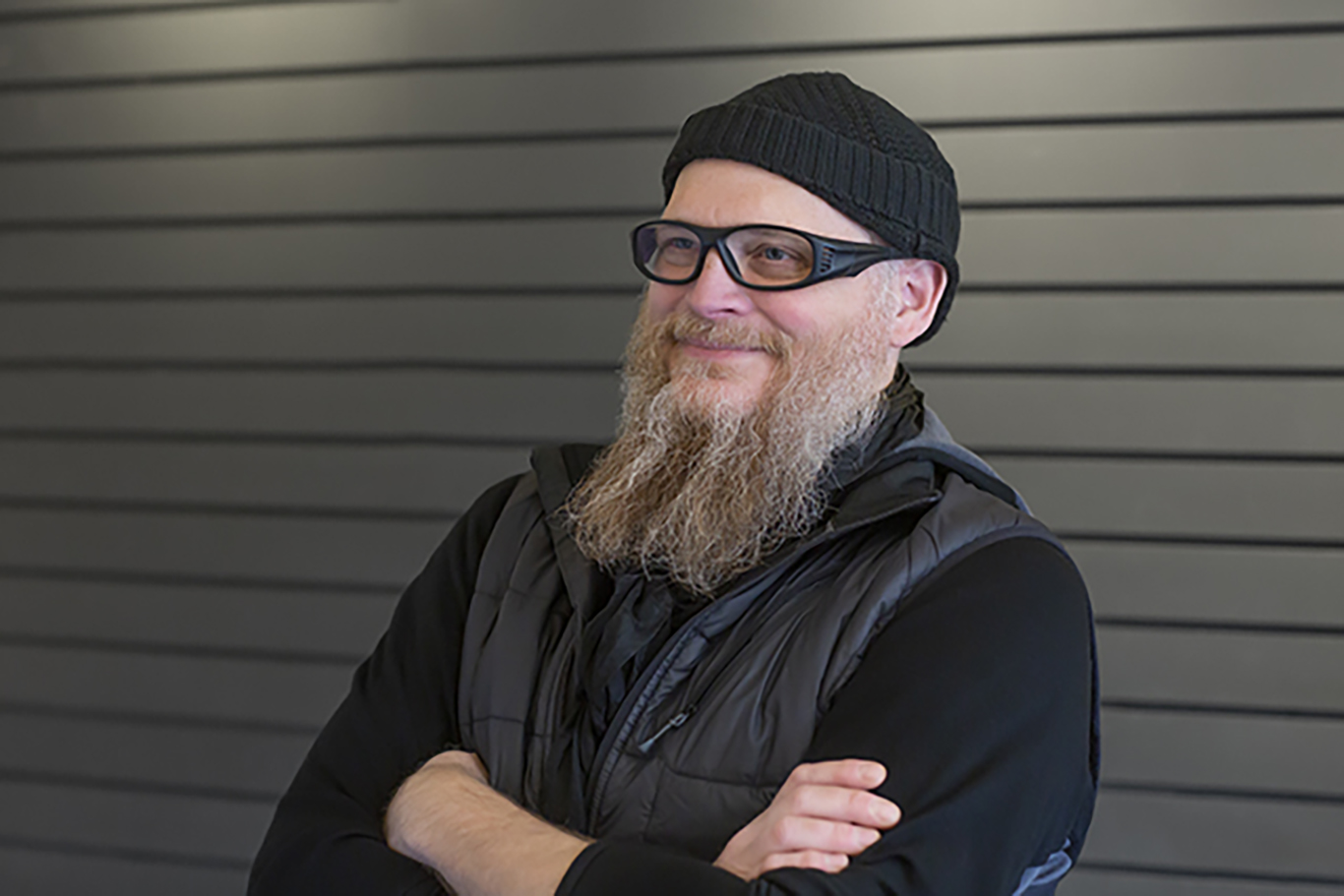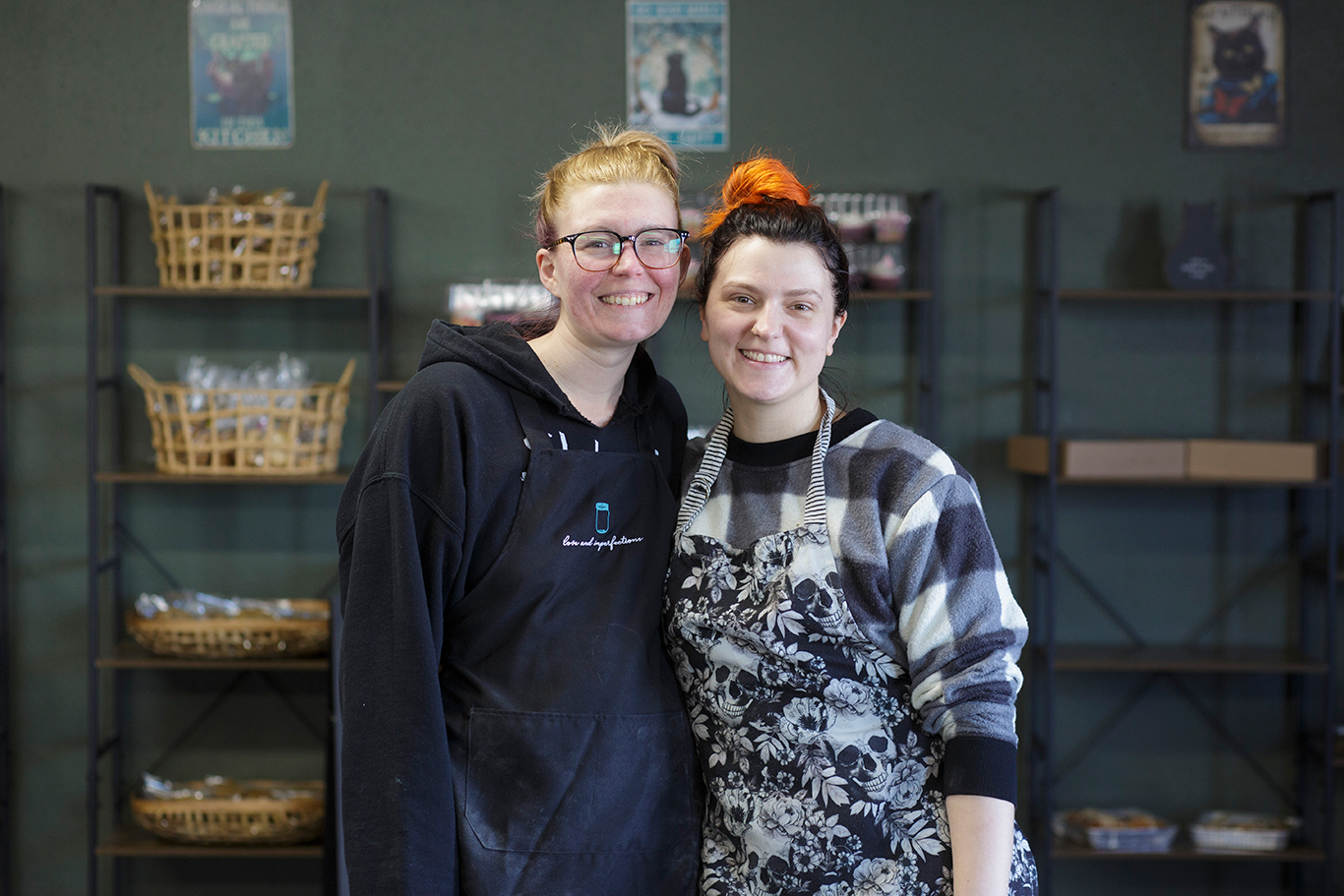Skyward eyes find common ground through the planetarium
2022 marks the MSUM Planetarium's 50th anniversary. After a half century of inspiring a curiosity in what exists beyond our sky, the people behind the Planetarium honor its significant milestone by sharing the historical orbit of this community asset. You can help ensure the continued success of the planetarium by donating today.
Like the night sky's countless stars, there are a seemingly endless number of success stories of former MSUM Planetarium students and staff never seem to end.
Jane Glanzer
For Jane Glanzer, teaching constellations to students of all ages was the best part of working at the MSUM Planetarium.
“I know that memorization freaked some people out,” she says. “I liked coming up with new ways to help people remember the constellations.”
She also led shows for elementary students who became very excited when she’d teach them facts about the planets and showed them the scale of the galaxy.
Glanzer graduated from MSUM in 2019 with a degree in physics with an emphasis on astronomy. In addition to working at the planetarium, she served as a learning assistant who helped other students in their astronomy and experimental physics courses. She also spent a summer as an undergraduate physics researcher at Louisiana State University.
Among her fondest memories at the planetarium were playing Artemis, a social video game that simulates a spaceship bridge and dressing up as Thing 1 for a PBS special her senior year.
Now a graduate student pursuing her Ph.D. in physics at LSU, Glanzer doesn’t remember all the constellations she used to teach others, but she still appreciates the night sky.
“It’s fun to point out what I do remember when I get a chance on a clear night,” she says.
Andrew Block
When somebody asks Andrew Block what his favorite job was, his answer comes easy: working at the MSUM Planetarium.
Block graduated from MSUM in 2018 with a degree in physics. He’s now an applications engineer at Carl Zeiss Industrial Quality Solutions.
Every four to six weeks, Block conducts remote or in-person training for a software suite that his company produces. He conveys technical information and complicated topics to a diverse audience. His work at the planetarium prepared him for this.
“We had to navigate the snags that came up and that was stressful, but it all worked out in the end,” he says.
Block worked at the planetarium for nearly four years. He remembers the upgrades that took place during his tenure, including replacing the old starball with a digital projector and coordinating artists to paint the theatre.
“I feel like these were a major level up in terms of how we presented ourselves,” he says.
He also enjoyed coordinating and leading shows that attracted crowds who may not have typically visited the planetarium. Among his favorite events were the Sesame Street show “One World, One Sky” geared toward young children and their parents, Laserfest!, and a Halloween-themed event.
Block still remembers a father and his elementary-aged son who visited the planetarium every weekend during one summer he worked there. Some weekends, they were the only ones in attendance. To Block, they represented the best of how a planetarium encourages education.
“Seeing them became a bit of a ritual,” Block says. “I was struck by the father’s encouragement of his son’s learning and the son’s questions.”
Sarahlynn Dobler
The MSUM Planetarium was Sarahlynn Dobler’s happy place in college.
“It was never a job to me. I was there to show people the universe,” she says. “I was sad when I had to turn in my key.”
Dobler graduated from MSUM in 2014 with a degree in studio art. She’s currently a website designer.
For three years she worked at the planetarium where she led shows for school-aged kids and exercised her creativity by developing special projects like one for the Curiosity rover, which landed on Mars while she was a student.
“Kids always asked the best questions,” she says. “Is the moon made of cheese? How much would I weigh on Jupiter?”
Dobler also remembers creating a Halloween show one year that featured comet scares and werewolves. She and another student dressed in costumes and handed out candy.
As a professional, Dobler still relies on public speaking and planning skills that she honed while working at the planetarium. She also tells herself that if she’s ever stranded in the wilderness at night, she might be able to find her way back home by the stars.
“I have the ability to find constellations in the sky without resorting to a map,” she says. “That’s always a great trick to know when camping.”
Shouvik Kanti Bhattacharya
Shouvik Kanti Bhattacharya chose MSUM for his undergraduate education because the university has a working observatory at the Buffalo River State Park and a planetarium on campus.
Bhattacharya graduated in 2013 with a degree in physics with an emphasis in astronomy. He worked at the planetarium for three years
“That work prepared me to engage with the public and talk to them about science,” he says. “It’s not always easy to break down concepts in simple English so that anyone can understand the science behind gravity or space radiation.”
Bhattacharya went on to attend graduate school where his master’s thesis involved developing animations of the electron flux at an altitude of 406 km. This came easy to him because he had a good foundation in the planetarium and night sky visual software.
He is now an education contractor and CEO of Ilkley Education, an e-learning platform that assists students in K-12 physics and mathematics education primarily in the United Kingdom.
Bhattacharya cherishes the relationships and friendships he nurtured while working at the planetarium. His senior year, the former planetarium officer, Scarlet Gray Bernard, produced a movie for the planetarium titled “Sky Zoo.” He helped her during the editing process and attended the premiere. Later, both Scarlet and her husband became close friends.
The digital projector was installed Bhattacharya’s senior year, and he remembers demonstrating how it worked to students from all different disciplines. He showed full-time movies like “Larry Cat,” and after the movie ended, he’d show the audience the moons of the other planets in the solar system.
“All along, it was a fun and educational experience,” he says.
Bhattacharya also tapped his passion for astronomy to welcome international students to campus. As the diplomat for International Student Services, he invited new international students to the planetarium and gave them a short tour of the night sky as a part of the orientation program.
“I always enjoyed students’ reactions to the night sky as soon as I dimmed all the light in the planetarium and turned on the analog/digital projectors,” he says.
Make Sure Your Story Is Heard
Let us know how your life has been changed by being a Dragon: tell us your MSU Moorhead story today!
Send Us Your Story


